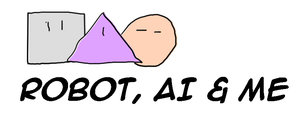Nanotechnology ("nanotech") is manipulation of matter on an atomic, molecular, and supramolecular scale. It's super tiny computing in the realm of 1 to 100 nanometers. The theoretical physicist Richard Feynman in his talk 'There's Plenty of Room at the Bottom' seeded a whole lot of activity in this area. Feynman lectures are legendary - check them out here.
Nanotech promises new possibilities for energy consumption, a cleaner environment, wondrous health applications and reduced costs while doing so. Nanotech is small, cheap, light, highly functional and requires much less energy and materials than traditional manufacturing. It's in use today for materials and coatings, drug delivery and medicine, enhancing the flavour of food and in electronics design.
However there is one branch of nanotech that gives us the major fear - self replicating nanotechnology. When nanotech self assembles things can get out of hand pretty quickly and one memorable illustration of this is called the 'grey goo' hypothesis. It's where out of control self replicating nanotech robots consume all the biomass on earth for raw materials to build more and more of themselves turning our lovely green planet, and us, into grey computing slop. Grey goo is the ultimate boundary breaker.
Technology continues to challenge our sense of boundaries:
what is public and what is private?
where does work end and personal life begin?
should we afford rights to smart machines?
does data derived from data need the same ownership and privacy rights?
Today, robotics, chatbots, drones, social media and mixed reality are all pushing our ideas of boundaries. Nanotech too will force us to reassess the gaps and layers between our native physical world and the synthetic one we intersperse with it.
Prepare for debates on keeping the ammonia eating nanotech inside the nappy bin, keeping the dead skin eaters confined to our own bodies and maybe even keeping our nanotech lawn from shutting in the neighbours.


